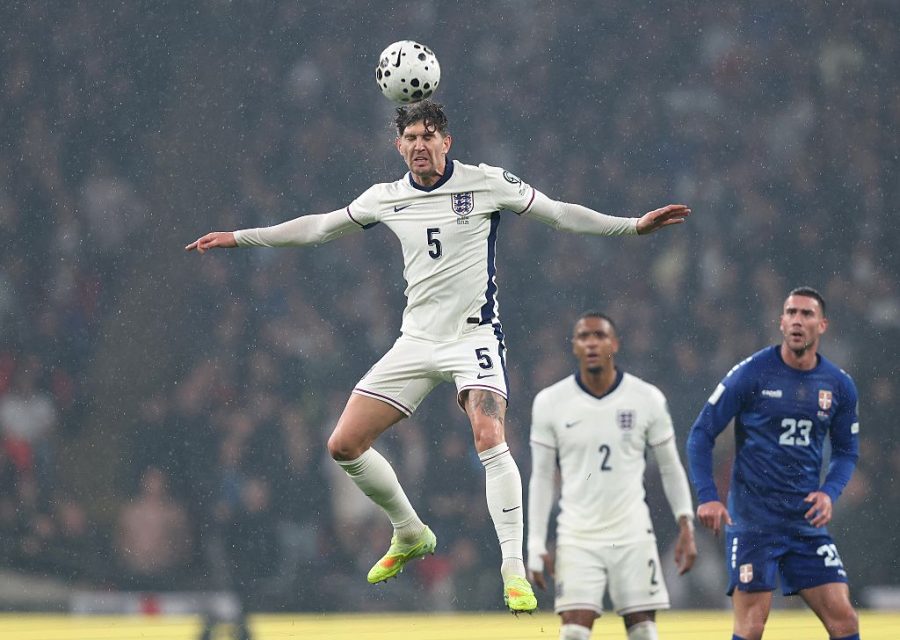England won its World Cup qualifier game again last night, this time against Serbia. And, once more, the Wembley reaction was rather muted. Thomas Tuchel must wonder on earth what he has to do to get the fans going. If seven qualifying wins in a row aren’t good enough, with no goals conceded, then what on earth will be?
It was only last month that Tuchel took a shedload of flack when he criticised the Wembley crowd for their noiseless reaction to an effortless 3:0 win over Wales. ‘We could have been 5-0 up at half-time,’ the manager said:
The stadium was silent. We didn’t get any energy back from the stands. We did everything to win. What more can you give in 20 minutes? If you hear just Wales fans for half an hour, it’s sad because the team deserved more support today … I would have wished for a bit more support in phases where it gets difficult.
Alright, that wasn’t terribly diplomatic of Tuchel, especially when you consider the exorbitant Wembley ticket prices. I doubt whether any FA public relations official recommended such a blatantly honest form of words. I know I wouldn’t. It’s rarely a good idea to blame the paying customer.
England fans should surely recognise that we are living through the good times
Yet, to be fair to Tuchel, he actually made a decent point (albeit one he noticeably refrained from making last night). Some supporters, not all by any means, are starting to take victory for granted.
How could this be? Well, we football fans are absolutely terrible at recognising a good thing when it’s staring us in the face, always thinking our team should be doing even better. This attitude is particularly prevalent in club football, where fans call for their manager’s head after just a handful of poor results. Liverpool’s Arne Slot knows all about that. But it happens in international football too.
Perhaps then, England fans should look back at their team’s post-1966 travails for a bit of perspective. I started supporting England as an eight-year-old way back in 1976, when Don Revie was manager, and I can attest that this current era, starting with Gareth Southgate’s appointment in late 2016, is by far the best. Oldies, like me, have bitter memories of failing to qualify for major tournaments in 1978, 1984, 1994 and 2008, not to mention five penalty shootout losses in a row between 1996 and 2012. Between 1970 and 2016, England reached just two semi-finals, losing them both. You don’t even have to be all that old to remember the nadir of the defeat to Iceland just nine years ago.
So, for fans to criticise the modern England team for failing to win a major tournament is, put in this historical context, a bit unappreciative. Yes, silverware has agonisingly eluded us, but two successive Euros finals, as well as a World Cup semi-final in 2018, are, given England’s history of horrible under-performance compared with other big footballing nations, a pretty decent return.
That fans can even contemplate challenging for the World Cup next year, given that we’ve only ever reached the final once in our history, and that was on home soil 59 years ago, shows how lucky we are. Likewise, we should be thrilled to bits that the team boasts players such as Harry Kane, Jude Bellingham, Declan Rice and Bukayo Saka, who might be candidates for a world eleven, and that the team is currently ranked four in the world (we were 27th just 30 years ago), with only France, Argentina and Spain ahead. We were also the first European team to qualify for the finals next summer. Fans of all other post-1966 generations would have bitten your hand off for that kind of success.
Last night’s match against Serbia is a good case in point. Okay, it was a dead rubber from our point of view, but England supporters who were underwhelmed by the team’s win might care to remember that beating Europe’s second tier of nations has not always been straightforward. Bobby Robson’s team failed to qualify for the 1984 Euros after losing to Denmark at Wembley, and Steve McClaren famously became the ‘wally with the brolly’ after his supposedly golden generation of players, including Wayne Rooney, Frank Lampard, Stephen Gerrard and David Beckham, failed to reach the 2008 Euros after an appalling Wembley loss to Croatia. Thankfully, even I’m too young for the 1973 defeat to Poland that saw the end of Alf Ramsey.
England fans should surely recognise that we are living through the good times. What’s more, if history is anything to go by, these good times most certainly won’t last forever. Nobody craves a tournament victory more than I do. But even if that holy grail remains just out of reach, let’s enjoy it all while it lasts and not get all bored and restless by a mere 2:0 victory. Otherwise, what on earth’s the point?
Robert Taylor's book Tears for England will be published next April.






Comments